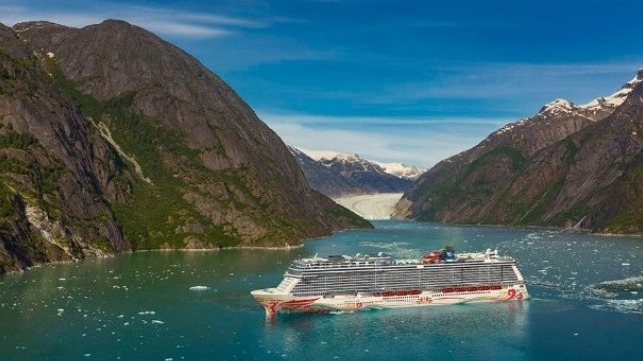FMC Commissioner Sola Calls for Exemption for 2021 Alaska Cruises

Citing the potential economic hardships to Alaska, Federal Maritime Commissioner Louis Sola issued a statement supporting waiving the U.S. cabotage requirements as a possible temporary solution to restore cruises to Alaska in 2021 in the wake of Canada’s decision to close its ports to large cruise ships. Sola’s statement supports similar calls from Alaska’s elected representatives and the cruise industry to find a solution to restore tourism to Alaska this coming summer.
“I encourage both the Biden administration and Congress to quickly review this issue and consider a limited exception to the PVSA (Passenger Vessel Services Act) while simultaneously engaging the Canadian government on the diplomatic front to address this particular problem,” said Sola in a written statement. “Finding a temporary solution to this dilemma that balances Canadian concerns with the urgent need of communities in Alaska to benefit from a 2021 cruise season should be an area where our respective governments can find common ground.”
Last year, acting as the Fact Finding Officer for the FMC, Sola examined the impact of COVID-19 on ports and the shipping industry around the United States. In a session exploring the impact of COVID-19 on the cruise industry in Alaska, Washington, and Oregon, Sola reported that “perhaps more than any other state in the nation, the cessation of cruise operations had wrought extensive hardship upon the people and economy of Alaska.” He found that many communities had lost significant revenues due to the suspension of the cruise industry.
“With 2021 and the arrival of vaccines against COVID-19, our fellow Americans to the north dared to begin to hope that the economic engine that is the cruise industry would again support jobs, provide paychecks, and generate prosperity,” says Sola. Under the U.S. coastwise trade requirements, Canada’s decision to ban large cruise ships until 2022 would prevent cruise ships from the “Lower 48,” Sola says from making the required stops in British Columbia on their way to Alaska, “placing those same vessels in potential conflict with the Passenger Vessel Services Act (PVSA).”
Absent bilateral cooperation, Sola says he would hope that there is creative and cooperative thinking taking place in Washington D.C. to determine how to remove this impediment to Alaska’s economic health.

that matters most
Get the latest maritime news delivered to your inbox daily.
Sola’s statement comes as U.S. Senators Lisa Murkowski, Dan Sullivan, and Congressman Don Young, all elected to represent Alaska, released a joint statement saying that they too were looking for solutions including, “changing existing laws, to ensure the cruise industry in Alaska resumes operations as soon as it is safe.”
While there has also been support voiced by the American small ship cruise industry, which is not impacted by the Canadian ban and will operate in Alaska this summer, to provide a temporary waiver for the large, foreign-flag cruise ships, few experts believe the U.S. Congress could act quickly enough to save the 2021 cruise season. The major cruise lines have not made statements nor announced cancellations for their planned Alaska cruises, but it is estimated it could take the cruise lines three to four months to restore operations on their ships. While some of the large cruise ships were repositioned to the U.S. and the West Coast recently, the cruise lines have yet to begin restaffing the hotel operations on the ships. The cruise lines also continue to wait for further guidance from the Centers for Disease Control (CDC) on aspects of resuming their operations, including the trial cruises called for in the framework the CDC issued last fall.
